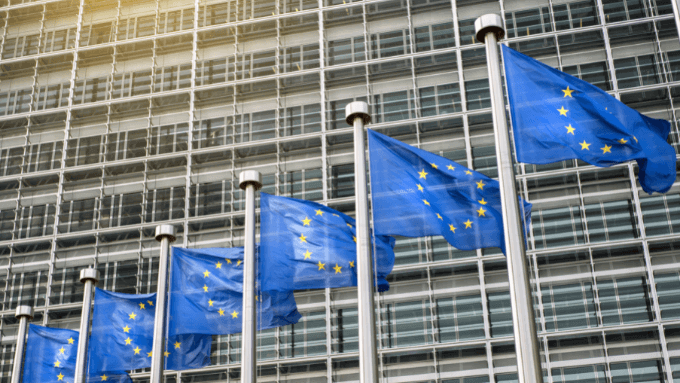Restriction of Online Advertisement and Sales: European Commission’s Guess Decision
Introduction
Restrictions imposed by suppliers on their resellers have become a hot topic of competition law practice in recent years, particularly in Europe. The European Court of Justice’s (“ECJ”) Coty ruling[1], which confirmed that a supplier of luxury goods may prohibit authorized retailers from selling its products on third party platforms, such as Amazon and eBay, has recently brought attention to vertical constraints concerning online sales.
Furthermore, pursuant to its Digital Single Market Strategy for Europe[2] plan, the European Commission (“Commission”) conducted an e-commerce sector inquiry, the final report of which was published in May, 2017[3].
Since then, the Commission has initiated a number of investigations to scrutinize the e-commerce sector, such as the recent investigations regarding online resale price maintenance by consumer electronics manufacturers[4], geo-blocking practices in the sale of video games[5], hotel price discrimination[6], cross-border and online sales restrictions of licensed merchandising products[7], and airline ticket distribution services[8].
Most recently, on 17 December 2018, the Commission fined the US-based clothing company Guess EUR 39.8 million for anti-competitive practices in its European selective distribution system. The Commission found that Guess had imposed various restrictions, including restrictions on cross-border sales and online advertising, which enabled the company to maintain artificially high retail prices, particularly in Central and Eastern Europe. The Commission concluded that Guess’ practices, which the company engaged in until 31 October 2017, deprived European consumers of one of the core benefits of the European Single Market, namely, the possibility to shop cross-borders for more choices and for better deals[9]. By cooperating with the investigation and acknowledging that its conduct was anti-competitive, Guess obtained a 50% reduction in the fine.
This decision is yet another demonstration of the increased scrutiny of distribution arrangements in the e-commerce sector, and is another warning for retailers to ensure that all of their commercial agreements are compliant with competition law. The decision also shows the practical implementation of the Commission’s focus as set out in the final report of its e-commerce inquiry.
Moreover, the determinations of the Commission in the decision sets forth a valuable frame for companies to pay attention to. Accordingly, it would be beneficial to examine the Guess decision of the Commission in detail.
Background
Guess designs, distributes, and licenses clothing and accessories under numerous trademarks, including “GUESS?” and “MARCIANO”. Guess operates a qualitative selective distribution system in the European Economic Area, where authorized retailers are chosen on the basis of quality criteria.
As confirmed in the Coty ruling, suppliers in the EEA may operate distribution systems that best serve their commercial interests, including selective distribution systems. In a selective distribution context, it is required that end-consumers must be able to purchase from any authorized reseller, including across national borders. As is also known, authorized resellers must also be able to independently offer the relevant products online and across borders, and to set their own resale prices. This is further supplemented by the recent Geo-Blocking regulation[10].
The Commission’s Findings
According to the decision[11], Guess’ distribution arrangements restricted the authorized retailers in its selective distribution system from:
- Using the Guess brand names and trademarks for the purposes of online search advertising;
- Selling online without prior and specific authorization by Guess. Guess had full discretion for this authorization, which was not based on any specified quality criteria;
- Selling to customers located outside the authorized retailers" allocated territories;
- Cross-selling among authorized wholesalers and retailers; and
- Setting retail prices of Guess products independently (resale price maintenance).
Each of these restrictions will be examined in detail, below, in light of the Commission decision.
Online Search Advertising Restrictions
The Commission determined that a key instrument used by Guess to implement its e-commerce strategy and to control the expansion of online sales by its independent distributors was to restrict the use of the Guess brand names and trademarks and, in particular, in Google AdWords[12].
According to the Commission, Guess systematically banned its retailers from using or bidding on Guess brand names and trademarks as keywords in Google AdWords in the EEA. It is further assessed that although Guess operated a selective distribution system in order to preserve the brand image of its products, it pursued different objectives when it came to its Google AdWords policy.
It is emphasized that Guess sought to maximize traffic to its own website at the expense of the independent Guess distributors and, therefore, it sought to reduce competitive pressure from authorized retailers on Guess’ own online retail activities, by curtailing the ability of authorized retailers to use this advertising tool effectively, and to keep down its own advertisement costs.
The Commission concluded that banning the use of the Guess brand names and trademarks in Google AdWords restricted the “findability” and, ultimately, the viability of authorized online retailers within Guess’ selective distribution system[13]. The Commission pointed out that the restriction had the objective to restrict competition within the meaning of Article 101(1) of the Treaty on the Functioning of the European Union (“TFEU”)[14].
Online Sales Restrictions
As it has been previously established, restriction of online sales is a hardcore restriction within Article 4(c) of the Vertical Agreement Block Exemption Regulation[15], according to the ECJ in Pierre Fabre[16].
According to the Commission, another part of Guess’ e-commerce strategy that favored its own website was to have a “limited number of independent operators selling Guess products online.” The Commission emphasized that this was achieved through a contractual term making online sales by authorized retailers conditional on the retailer first obtaining explicit authorization from Guess to conduct online sales. Additionally, no quality criteria was specified for deciding whether or not to grant authorization, and Guess had full discretion to decide whether or not to allow authorized retailers to sell online[17].
In light of the foregoing, the Commission pointed out that to contractually obtain great discretion, instead of ensuring compliance with objective criteria of a qualitative nature, constituted a violation of EU competition rules[18]. The Commission referred to the Coty ruling, wherein the ECJ held that a specific contractual clause within a selective distribution agreement, which pursues a legitimate objective, is lawful under Article 101(1) of the TFEU, only if the quality criteria are laid down “uniformly,” and are “not applied in a discriminatory fashion.”[19]
Restrictions on Wholesale and Retail Cross-selling among Selective Distribution Network Members
The Commission determined that a number of provisions in Guess’s distribution agreements limited the ability of wholesalers and authorized retailers to promote and sell Guess products to other wholesalers or authorized retailers within the selective distribution network of Guess, therefore, limiting competition in the EEA[20].
Restrictions on Cross-border Sales to End-users
It was concluded that certain provisions of the distribution agreements prevented retailers from selling Guess products to end-users outside their allocated territory. It was particularly emphasized that the restrictions were aimed at both active and passive sales; in other words, they allowed neither advertising, nor sales, outside the allocated territory[21].
Resale Price Maintenance
Finally, the Commission found that Guess violated Article 101 of the TFEU by way of intervening in the resale prices of its authorized resellers. In particular, it was determined that Guess monitored the pricing of its retailers, and attempted to influence them to correct resale prices that they considered to be “misaligned” with Guess’s “recommended” resale prices[22].
Implications and Remarks
In the Guess case, the Commission condemned an undertaking with a selective distribution system that practiced several hardcore restrictions. The decision constitutes a considerable benchmark for companies, as it sets forth the Commission’s attitude towards a number of different vertical restrictions.
Most importantly, the decision sheds new light on the Commission’s approach to online search advertising restrictions. In the Commission’s view, Guess’s objectives to reduce competitive pressure on its own online retail activities, and to keep its advertising costs to a minimum, were not legitimate. Therefore, in categorizing Guess’s AdWords restriction as restricting competition ‘by object,’ the decision suggests that it may be difficult for brand owners to justify such restrictions under the EU competition rules.
Furthermore, throughout its reasoned decision, it can be observed that the Commission made extensive reference to Guess’s internal strategy papers, as well as the selective distribution contracts, in reaching its findings. The decision thus serves as a reminder that internal company documents may very well be utilized for the assessment of anti-competitive conduct.
It is safe to say that e-commerce and online distribution remain a priority to the Commission, as evidenced by decisions, such as the Guess decision. The Guess decision, along with decisions that may result from the investigations, which were opened since the launch of the e-commerce inquiry, provide useful insight into the Commission’s priorities going forward. In this respect, since the Vertical Agreement Block Exemption Regulation will expire on 31 May 2022, the Commission will most likely evaluate whether the current vertical rules are still efficient and plausible in the age of e-commerce. Therefore, in relation to new forms of online sales restrictions, the Commission continues its evaluations by way of decisions, such as the Guess decision, and sets the field for the new approach with respect to online markets.
[1] ECJ preliminary ruling in Case C-230/16 Coty Germany GmbH v Parfümerie Akzente GmbH, 6 December 2017.
[2] Communication from the Commission to the European Parliament, the Council, the European Economic and Social Committee and the Committee of the Regions a Digital Single Market Strategy for Europe.
(COM/2015/0192 final) https://eur-lex.europa.eu/legal-content/EN/TXT/?uri=COM%3A2015%3A192%3AFIN
[3] Final report on the E-commerce Sector Inquiry (Brussels, 10.5.2017 - COM(2017) 229 final) http://ec.europa.eu/competition/antitrust/sector_inquiry_final_report_en.pdf
[4] http://europa.eu/rapid/press-release_IP-17-201_en.htm,
Investigation closed in July, 2018, with imposition of a fine over EUR 111 million to consumer electronics manufacturers, Asus, Denon & Marantz, Philips and Pioneer, for imposing fixed or minimum resale prices on their online retailers in breach of EU competition rules: http://europa.eu/rapid/press-release_IP-18-4601_en.htm
Case numbers are AT. 40465 (Asus), AT.40469 (Denon & Marantz), AT.40181 (Philips), AT.40182 (Pioneer).
[5] http://europa.eu/rapid/press-release_IP-17-201_en.htm.
[6] http://europa.eu/rapid/press-release_IP-17-201_en.htm.
[7] http://europa.eu/rapid/press-release_IP-17-1646_en.htm.
[8] http://europa.eu/rapid/press-release_IP-18-6538_en.htm.
[9] Press Release - http://europa.eu/rapid/press-release_IP-18-6844_en.htm.
[10] Regulation (EU) 2018/302, which came into force on 22 March 2018, and has applied since 3 December 2018, addresses unjustified on-line sales discrimination based on customers" nationality, place of residence, or place of establishment within the internal markets.
[11] Case AT.40428 of 17.12.2018, para. 2.
[12] Case AT.40428 of 17.12.2018, para. 40.
[13] Case AT.40428 of 17.12.2018, para 45-52.
[14] Case AT.40428 of 17.12.2018, para 126.
[15] Commission Regulation (EU) No. 330/2010, 20 April 2010.
[16] Case C-439/09- 2011.
[17] Case AT.40428 of 17.12.2018, para 53-57.
[18] Case AT.40428 of 17.12.2018, para 63.
[19] Case AT.40428 of 17.12.2018, para 130.
[20] Case AT.40428 of 17.12.2018, para 64-78.
[21] Case AT.40428 of 17.12.2018, para 83.
[22] Case AT.40428 of 17.12.2018, para 87.
All rights of this article are reserved. This article may not be used, reproduced, copied, published, distributed, or otherwise disseminated without quotation or Erdem & Erdem Law Firm's written consent. Any content created without citing the resource or Erdem & Erdem Law Firm’s written consent is regularly tracked, and legal action will be taken in case of violation.
Other Contents

Mergers and acquisitions are among the types of transactions that are subject to intensive scrutiny by competition authorities. As a rule, competition authorities only subject transactions that exceed certain turnover thresholds and result in a change of control to merger…

The U.S. District Court for the District of Columbia (“Court”) issued its memorandum opinion (Memorandum Opinion) on November 18, 2025, in the antitrust case (“Case”) between the Federal Trade Commission (“FTC”) and Meta Platforms Inc. (“Meta”). The FTC alleges that Meta monopolized the market…

No-poach agreements, which have become one of the most prominent concepts in global competition law in recent years, are defined in the Glossary of Competition Terms as “agreements, whether direct or indirect, whereby one undertaking agrees not to make job offers to, or hire, the employees of another...

The Competition Board (“Board”) has broad powers to request information from undertakings. The legal basis for this authority is provided by Article 14 of Law No. 4054 on the Protection of Competition (“Law No. 4054”). Under this provision, the Board may request any information it deems necessary from public...

Competition authorities around the world have increasingly focused on labor market infringements under competition law, issuing new regulations and guidance recently. Notable examples include the U.S. Department of Justice and Federal Trade Commission’s joint guidance, the Japanese Fair Trade Commission’s...

Chapter 8 of the General Data Protection Regulation (“GDPR”) sets out the legal remedies available to data subjects in the event of a breach of their rights under the GDPR. Accordingly, each data subject has a right to lodge a complaint with the supervisory authority of the Member State in which they reside, work...

Mergers and acquisitions play a critical role in shaping the competitive structure of the market. Although such transactions can lead to positive outcomes such as the provision of products and services at lower prices, the development of new products and technologies, and improvements in quality, they may also...

Technology and the opportunities it brings undoubtedly play a key role in strengthening the competitiveness of market players. In this context, pricing algorithms that enable undertakings to monitor publicly available prices and optimize their own pricing strategies have become widely used, especially by digital platforms...

The Regulation on Fines to Apply in Cases of Agreements, Concerted Practices and Decisions Restricting Competition, and Abuse of Dominant Position (“Former Regulation on Fines”), which entered into force upon its publication in the Official Gazette dated February 15, 2009 and numbered 27142, was...

In the past years, the Turkish Competition Board (“Board”) has closely monitored the activities of undertakings operating in the retail sector. As a result of the Board’s record of administrative fines, horizontal type of violations in the retail sector have been highly publicized. Vertical violations such as resale price...

In recent years, numerous automobile manufacturers have announced their goals to reduce carbon emissions, with many brands setting net-zero carbon targets spanning from production processes to the lifecycle of their vehicles. While ongoing debates persist regarding the significantly higher carbon footprint of...

Under Article 15 of Law No. 4054 on the Protection of Competition (“Law No. 4054”), the Competition Board (“Board”) may conduct on-site inspections at the undertakings’ premises when it deems necessary in fulfilling the duties assigned to it. During the on-site inspection, the Board is authorized to examine all...

Agreements and information exchanges between undertakings in labor markets have recently been examined in various preliminary investigations and investigations initiated by the Turkish Competition Authority (“Authority”). Following the investigations in which some undertakings were subject to...

The Turkish Competition Board’s (Board) decision regarding the acquisition of the international road transport business line of Ekol Lojistik AŞ (Ekol) by DFDS A/S (DFDS) has been one of the most prominent transactions on the competition law agenda recently...

The Competition Board (“Board”) has broad powers to request information from undertakings. The Board’s authority to request information arises from Article 14 of the Law No. 4054 on the Protection of Competition (“Law No. 4054”). Under the relevant provision, the Board may request any information it deems...

Doğuş Otomotiv Servis ve Ticaret A.Ş. (Doğuş) applied to the Turkish Competition Authority for an exemption for the practice of recommending basic wages to be applied to sales and after-sales service employees of its authorized dealers and distributors...

Access to Instagram was blocked ex officio by the Information and Communication Technologies Authority (ICTA) as of 2.08.2024. Under Article 8 of Law No. 5651 on the Regulation of Publications on the Internet and Combating Crimes Committed Through These Publications, ICTA can issue an ex officio access...

It is well known that agreements between employer undertakings with regards to their employees, such as wage-fixing and non-poaching agreements, along with competitively sensitive information exchanges have been under the scrutiny of competition authorities all over the world, including the Turkish Competition...

Automotive is one of the sectors in which the world’s most significant investments are made. The Competition Board (“Board”) has been closely interested in the automotive sector over the years and has conducted various examinations and studies in this field...

Competition authorities around the world continue unabated to investigate competition concerns arising from data collection and processing activities of digital platforms and impose severe sanctions as a result...





The startup ecosystem in Turkey has experienced notable growth in recent years. In the last quarter of 2023, 81 startups secured a combined investment of around 60 million dollars. While the number of investments remained consistent when comparing the third quarter periods of 2022-2023, there was a decrease...

Hub and Spoke cartel is a type of violation that is not clearly defined and regulated under Law No. 4054 on the Protection of Competition (“Law No. 4054”). Decisional practices of foreign competition authorities, particularly the UK Competition and Markets Authority’s decisions (“CMA”), are instructive concerning...

The Competition Board ("Board") made an addition to its line of decisions on resale price maintenance with its decision on Sunny Elektronik Sanayi ve Ticaret A.Ş. ("Sunny") . In its decision, the Board thoroughly examined the allegations regarding Sunny's involvement in maintaining resale prices and restricting...

It is observed that the Competition Authority (“Authority”) has recently scrutinized various industries such as fast-moving consumer goods, labor market, pharmaceuticals, and cement. When the reasoned decisions of the Competition Board (“Board”) published in October are examined, it can be seen that the...

Jules Verne says, “Everything on earth has a limited lifespan, nothing that will exist forever can be created by human hands”. Perhaps change is the only constant concept in all our lives. Despite two major world wars and countless periods of crisis, humanity has been undergoing a great change and...

At the meeting of the Fédération Internationale de Football Association (“FIFA”) held on 16 December 2022, the FIFA Council approved the FIFA Football Agents Regulations (“FFAR”). In the FFAR, various amendments have been made, such as the introduction of a maximum service fee limit that football agents are...

Resale Price Maintenance (RPM) is still considered a hardcore restriction under the recently revised Vertical Block Exemption Regulation (VBER), which means that it cannot benefit from a statutory exemption under Article 101(1) TFEU, unlike certain other types of vertical agreements. However, it has been debated...

In competition law, it is important to accurately determine the concept of undertaking, especially in terms of mergers and acquisitions. Therefore, the concept of economic entity aims to reveal the economic units covered by the undertakings. The relationship between the concept of economic entity and family ties comes...

In these days when the Competition Board (“Board”) frequently imposes administrative fines for preventing on-site inspections and both the Competition Authority (“Authority”) and undertakings take legal and technical measures regarding on-site inspections, a striking development has occurred. In its decision...

Online advertising has become an important source for businesses for promoting products and services and meeting consumers, as a result of the rapid development of information technologies and increase in the use of internet. Delivering targeted messages to consumers at the right time through the digital...

Selective distribution systems refer to a type of distribution system in which suppliers commit to selling the contracted goods or services directly or indirectly to distributors selected based on specified criteria, while the distributors commit not to sell the said goods or services to unauthorized...

Fast-moving consumer goods is undoubtedly one of the sectors that the Competition Authority has been working most intensively since the COVID 19 pandemic. Among the most important developments of this period was the Sector Inquiry initiated on Fast Moving Consumer Goods (“FMCG”) Retailing...

In the decision of the Constitutional Court ("Constitutional Court" or "Court") dated 09.11.2022, numbered 2020/67 E. 2022/139 K. (the "Decision"), the annulment of certain articles of the Law Amending the Law on the Protection of Competition No. 4054 ("Law No. 7246") was requested...

In Turkish competition law, certain types of mergers and acquisitions are subject to Turkish Competition Board’s (“Board”) approval in order to gain legal validity. Pursuant to Article 7 of the Law No. 4054 on the Protection of Competition (“Law No. 4054”), the Board is competent to define mergers and acquisitions...

Recently, the Competition Board (the Board) had imposed administrative fines on banks and financial institutions for failing to respond to the request for information within the scope of a preliminary investigation.[i] The request for information that lays the groundwork for the administrative fine imposed by...

Amazon, a world-famous company, is an e-commerce company that operates the world’s largest online shopping platform. In the backstage, Amazon is a data-driven company whose retail decisions are mostly driven by automated systems, fueled by the relevant market data. That being said, Amazon has a dual...

The right to make on-site inspections is one of the Competition Board’s (“Board”) most important tools for revealing whether Law No. 4054 on the Protection of Competition (“Law No. 4054”) has been violated. The effective use of this authority is quite important in terms of obtaining fruitful results from...

“Harese” is an interesting Arabic word. There is a thorn that camels love very much in the desert. The camel eats the thorn with great greed. So much so that, its mouth bleeds as it eats, but it doesn't stop eating. The taste of the thorn is mixed with the salty taste of its own blood. This mixed taste drives the camel...

Turkey’s leading pay television service provider, Krea İçerik Hizmetleri ve Prodüksiyon A.Ş. (“Digiturk”), is frequently the subject of complaints made to the Competition Authority (“Authority”). In fact, the Competition Board (“Board”) issues a new decision about Digiturk almost every year. In these decisions...

The French Competition Authority (Autorité de la Concurrence), within the scope of the competition law proceeding initiated upon the complaint of Criteo SA (“Criteo”), accepted the commitments proposed by Meta Platforms Inc., Meta Platforms Ireland Ltd., and Facebook France...

While the scope of Competition Board’s (“Board”) power to conduct on-site inspections has increased with the introduction of Guidelines on Examination of Digital Data during On-site Inspections (“Guidelines”), nowadays the amount of monetary fines imposed on undertakings continue to...

The hub and spoke cartel, which is a relatively new type of violation in terms of Turkish competition law, is defined as the indirect exchange of information between two independent undertakings which are horizontal competitors on the supplier or retailer level, through another undertaking...

The settlement mechanism has only recently been introduced to Turkish competition law practice. It entered into force with the amendment made to the Law on the Protection of Competition (“Law”) numbered 4054 on 16.06.2020, and has been in effect for less than two years. In this relatively...

Due to their increasing share in the economy and rapid growth rate, e-marketplace platforms have come under the increasing scrutiny of the Turkish Competition Authority (“Authority”) as well as many competition authorities around the world...

Pursuant to the Amendment Communiqué Concerning the Mergers and Acquisitions Requiring the Competition Board’s Approval (“Amending Communiqué”) published in the Official Gazette dated March 4th, 2022 and numbered 31768, certain amendments have been introduced...

The Competition Board (“Board”) has recently published a reasoned decision in which it evaluated BSH Ev Aletleri Sanayi ve Ticaret A.Ş.’s (“BSH”) request for negative clearance or exemption with regard to its practice of prohibiting authorized dealers from making sales through online marketplaces...

Shahmaran, a Mesopotamian myth, is believed to take place in Tarsus. According to the myth, the shah of snakes is the immortal and omniscient "Shahmaran." Shahmaran is described as a beautiful woman living in her cave with her snakes...


During the COVID-19 pandemic, competitive concerns about the pricing behavior of chain markets, manufacturers, and wholesalers engaged in the retail trade of food and cleaning supplies led to an investigation by...

When the past decisions and the recent decisions of the Competition Board (“Board”) are examined, a significant increase can be observed in the number of decisions where the Board found hindrance or obstruction of on-site inspections. This situation shows that...

The European Commission began investigating the collusive behavior of Credit Suisse, UBS, Barclays, RBS, and HSBC in the Foreign Exchange (forex) spot trading market in 2019. With the recent press release dated 02.12.2021, the Commission announced that the case is now closed...


Digitalization, in particular, necessitates the rewriting of competition law rules. Competition law is at the center all questions regarding e-commerce and digital platforms. The aforementioned platforms, which have become prominent due to innovations in...
















































